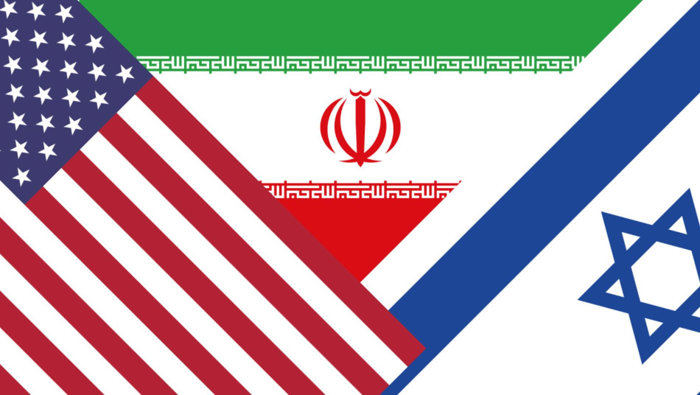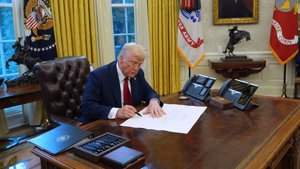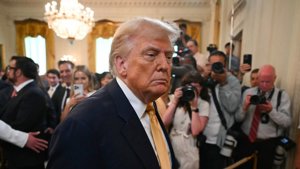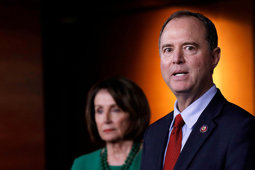
Israel-Iran War Exposes Party Splits, Trump Urges Diplomacy
Israel-Iran conflict exposes Democratic and Republican rifts as Trump urges talks and faces party backlash over U.S. policy.
Escalating Middle East Conflict Splits U.S. Political Parties
The ongoing war between Israel and Iran has thrown both major U.S. political parties into fresh turmoil, as President Donald Trump’s calls for renewed nuclear negotiations and strong warnings to Tehran reveal sharp divides among Democrats and Republicans. The conflict, now in its fourth day of missile strikes and aerial attacks, began after Israel’s initial strike killed top Iranian military leaders, igniting daily bombardments and rising casualties in both nations.
In a press conference Monday from Canada, where he was attending a summit of Western leaders, Trump called on Iran to return to nuclear talks with the U.S. “before it’s too late,” emphasizing the urgency of diplomacy to prevent a wider war. “They should talk, and they should talk immediately,” Trump told reporters, as global headlines focused on the potential for broader regional escalation.
The attacks have deepened existing splits within the Democratic Party, which has struggled for years over its approach to Israel. Senate Minority Leader Chuck Schumer voiced strong support for Israel’s right to self-defense and stressed that Iran must not obtain a nuclear weapon. Senator Jackie Rosen echoed this stance, urging continued U.S. support for Israel in a moment of crisis. In contrast, other prominent Democrats such as Senator Jack Reed warned that Israel’s “reckless escalation” risked igniting regional violence, while Representative Pramila Jayapal called for de-escalation and warned against U.S. involvement in “another forever war.”
Trump’s Approach Divides Republican Coalition
Republicans, traditionally unified in support of Israel, are now experiencing their own internal rifts. While Congressional leaders like Senate Majority Leader John Thune and House Speaker Mike Johnson quickly backed Israel’s actions, President Trump’s cautious posture and emphasis on limited U.S. involvement have fueled debate. Trump, who has warned Tehran of overwhelming U.S. military retaliation if attacked, also signaled reluctance for direct military engagement, aligning with his “America First” promise to avoid foreign entanglements.
Prominent MAGA allies, including Representative Marjorie Taylor Greene, fiercely oppose any American intervention, asserting that “we are sick and tired of foreign wars.” Conservative commentator Tucker Carlson also urged avoidance of military escalation, criticizing what he described as “warmongers” on both sides. Political strategists note that Trump’s transformation of the GOP—away from hawkish foreign policy toward isolationism—has created a fragile coalition, now tested by the Middle East crisis.
Despite Trump’s calls for diplomacy, his suggestion in media interviews that U.S. involvement “is possible” has unnerved some supporters. Analysts like Wayne Lesperance emphasize that this moment is a pivotal decision point for the GOP, which must balance a long history of supporting Israel against growing demands within the party to reduce America’s role in global conflicts.
As missile attacks continue and the prospect of a wider war looms, the Israel-Iran conflict is likely to remain a source of partisan debate in Washington, challenging both parties to define their positions on U.S. leadership, diplomacy, and military engagement in the Middle East.






